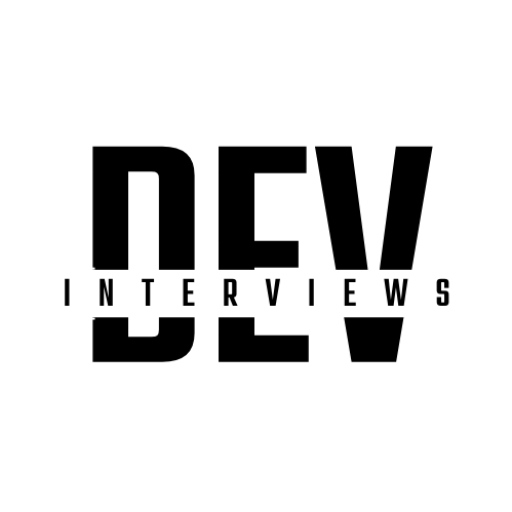Receiving feedback after a technical interview is a valuable opportunity for growth. Whether you passed the interview or not, understanding the insights shared by the interviewers can help you improve your skills and approach for future opportunities. However, interpreting and applying feedback effectively requires the right mindset and strategy.
In this article, we’ll discuss how to properly receive, interpret, and leverage feedback to enhance your performance in future technical interviews.
1. Be Open to Constructive Criticism
The first step to receiving feedback is having an open and positive mindset. Feedback, especially constructive criticism, is not a personal attack but a tool for growth. Even if some of the comments feel discouraging at first, remember that understanding your weaknesses is key to improving.
- Stay humble: No matter how skilled you are, there’s always room for improvement. The best developers constantly seek ways to better themselves.
- Detach emotionally: It’s natural to feel disappointed after a tough interview, but try to detach emotionally from the feedback. Instead of focusing on the negative, look at it as a guide for your future success.
2. Ask for Detailed Feedback
If the interviewer hasn’t provided specific feedback, don’t hesitate to ask for it. The more detailed the feedback, the better equipped you’ll be to improve your skills. When reaching out to the interviewer or recruiter, ask politely for clarification on the areas where you can improve.
- Be specific in your request: If possible, ask about particular areas of the interview where you struggled, such as coding challenges, problem-solving approaches, or communication.
- Show appreciation: Regardless of the outcome, thank the interviewer for their time and insights. A respectful approach may also increase your chances of getting detailed and helpful feedback.
3. Analyze Your Performance Objectively
Once you receive feedback, take some time to reflect on it. Analyze your performance objectively to identify specific areas that need improvement. Were there gaps in your technical knowledge? Did you struggle to communicate your thought process clearly? Knowing where you went wrong will help you create a plan to fix it.
- Categorize feedback: Break down the feedback into categories like technical skills, communication, and problem-solving. This helps you address each aspect systematically.
- Review your own performance: Along with external feedback, reflect on your personal assessment of the interview. Did you feel confident during certain parts, or did you notice areas where you felt underprepared? Combine your self-reflection with the feedback you received to get a comprehensive understanding.
4. Improve Your Technical Skills
Technical interviews often expose gaps in your knowledge or skills, which is a great opportunity to work on those weaknesses. Focus on strengthening your technical foundation based on the feedback you received.
- Practice more coding challenges: If your feedback mentioned struggles with coding problems, dedicate time to practicing on platforms like LeetCode, HackerRank, or CodeSignal. Focus on areas that were challenging during the interview.
- Study the fundamentals: If you were caught off guard by questions on data structures, algorithms, or system design, go back to the basics and reinforce your understanding.
- Learn from your mistakes: If the feedback mentioned specific mistakes, such as incorrect algorithms or inefficient solutions, make sure to revisit those topics and learn the correct approaches.
5. Work on Communication and Problem-Solving Skills
Sometimes, technical interviews aren’t just about solving problems but also about how you approach and communicate your solutions. If the feedback indicated issues with communication or problem-solving approaches, these are equally important areas to address.
- Practice explaining your thought process: One of the keys to acing technical interviews is articulating your thought process clearly. Practice explaining your code and reasoning out loud, even when solving problems on your own.
- Break down problems methodically: If your feedback suggests you struggled with problem-solving, focus on breaking down complex problems into smaller parts. Use strategies like pseudocode or diagrams to visualize the problem before diving into code.
6. Take Action and Track Progress
Feedback is only useful if you act on it. Once you’ve analyzed and interpreted the feedback, create a concrete plan for improvement. Set specific goals and track your progress over time.
- Set achievable goals: Break down your improvement plan into small, actionable goals. For example, if you need to improve in algorithms, set a goal to complete a certain number of coding challenges per week.
- Track your progress: Keep a record of your improvements, such as solved coding problems, new concepts learned, or feedback from subsequent interviews. Seeing your progress will motivate you to keep improving.
- Seek further feedback: After working on your weaknesses, try to apply for more interviews to test your skills. Request feedback after each interview to ensure you’re on the right track.
7. Build Confidence from Feedback
Even if feedback reveals areas where you need to improve, it’s also an opportunity to recognize your strengths. Acknowledge what you did well in the interview and build confidence from that. Recognizing your achievements, no matter how small, can boost your morale and keep you motivated.
- Celebrate small victories: If the feedback mentioned that you handled certain parts of the interview well, take pride in those areas. Confidence grows from recognizing both your strengths and your weaknesses.
- Stay positive: Every interview, whether successful or not, brings valuable lessons. Staying positive and keeping a growth mindset will help you approach future interviews with renewed confidence and better preparation.
Conclusion
Receiving and using feedback after a technical interview is an essential part of improving as a developer. By remaining open to criticism, analyzing your performance, and taking concrete steps to address your weaknesses, you’ll be better prepared for future opportunities. Feedback isn’t just a reflection of where you went wrong — it’s a guide to where you can go next. With the right approach, every piece of feedback can be a stepping stone toward success.



